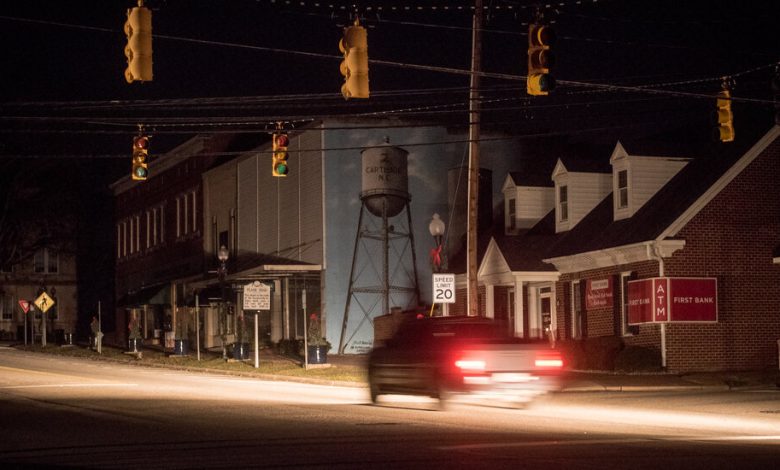Governor Calls Attack on Power Stations a ‘New Level of Threat’

CARTHAGE, N.C. — Tens of thousands of people in a rural North Carolina county remained without power on Monday as authorities worked to repair two power stations damaged by targeted gunfire on Saturday night, an attack that Gov. Roy Cooper said raised “a new level of threat.”
Beyond reiterating that whoever carried out the attack “knew exactly what they were doing” and that the damage had been substantial, officials gave few new details about the investigation during a news conference at the Moore County sheriff’s headquarters. Mr. Cooper, a Democrat, said that the incident had drawn attention to the importance of protecting critical infrastructure.
“I know that with our power sector, water infrastructure — we know that potential vulnerabilities are there,” he said. “We will be evaluating ways to work with our utility providers and our state and federal officials to make sure that we harden our infrastructure where that’s necessary.”
Utility companies maintain more than 55,000 substations throughout the country, and the equipment sits in locations that are highly vulnerable to vandalism and attacks.
In April 2013, a sniper fired on the Metcalf Transmission Substation near San Jose, Calif., damaging 17 transformers and requiring $15 million in repairs. In response to that incident, Pacific Gas & Electric, California’s largest utility and the owner of the substation, added more security guards, lighting, cameras and buffer zones with additional fencing.
The California Public Utilities Commission said in a 2018 report that the attack on the Metcalf substation was a “‘wake-up call’ or an alarm for the electric utility industry to apply closer scrutiny to the vulnerability of key infrastructure to various kinds of attack.”
The attack on the North Carolina stations left roughly 45,000 people without power in Moore County, which lies about 60 miles southwest of Raleigh. Power had been restored to about 7,000 customers by late Monday afternoon, officials said, but they added that most would likely have to wait until Thursday, even as temperatures in the region fell into the 40s. The Federal Bureau of Investigation is working with state and local law enforcement on the investigation.
Asked on Sunday whether the vandalism could have been related to a weekend drag show in the area that had faced backlash, Ronnie Fields, the Moore County sheriff, said, “Anything’s possible. But we’ve not been able to tie anything back to the drag show.”
Moore County lies in the sandhills running through central North Carolina, a rural stretch of pines, churches and world-class golf courses. Many residents are active-duty and former service members whose military careers were based at nearby Fort Bragg, home of the U.S. Army’s 82nd Airborne Division.
On Monday, Carthage, the county seat, had the quiet and somewhat improvised feeling of a coastal town in the wake of a hurricane, with traffic lights dark at busy intersections and church groups and other volunteers lining the roads to hand out hot dogs and barbecue to their neighbors.
A county sports complex was serving as a shelter — about 20 people stayed there on Sunday night, officials said — and the public library in the town of Southern Pines was offering warm drinks, phone chargers and board games “for an escape from reality.” Schools were closed, stores took only cash, restaurants gave away refrigerators full of food and some residents stood in their front yards warming their hands over barrel fires.
“If you live outside of town, you have no running water,” said Allison Isenhart, whose family, including the dog, has spent the nights since Saturday huddled under one blanket. “If you live inside of town, like in our neighborhood, you have running water but it’s ice cold. We can’t wash our clothes, we have to throw away all of our groceries and we can’t cook.”
“Our neighborhood has elderly and other people who need medical care,” Ms. Isenhart added. “It’s ridiculous that someone would do this and hurt other people.”
This current of anger ran throughout conversations in the county, including at the Southern Pines Growler Company, a brewery that had been able to keep the lights on. Under the whir of a generator, dozens of people were sitting inside chatting over beers, thankful to have found a place still open but furious that they had to and theorizing about who had been behind the attacks.
“There’s a lot of people in this country that are very unhappy about the way things have been going,” said Gerald Bateman, the owner. “Unfortunately, some people take things to a point that is so far beyond normalcy that you just have to throw your hands up.”
Ivan Penn and Kyle Ingram contributed reporting.
